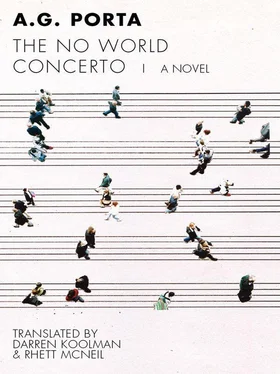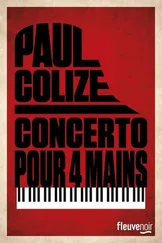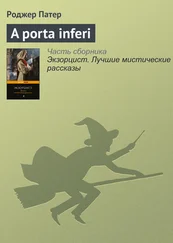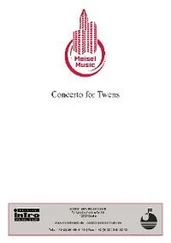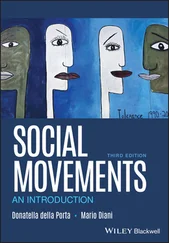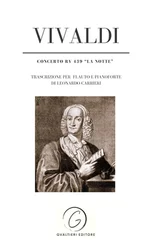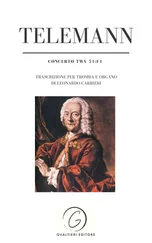By the early hours of the morning, there are only a few survivors from the previous night, and they continued drinking heavily long after the girl’s mother left. At some point during the night, the screenwriter suggested the girl read S’s sonnets, and that, instead of writing, she should study the piano works of B, H, M, or C. They say you run out of time, that after the age of twenty, if you haven’t already mastered the whole repertoire, something will be lacking for the rest of your life. At some other point in the evening, the screenwriter told the girl about an early film by the director of the movie in which an angel can hear other people’s voices. He wants to listen to the soundtrack of the film. The music is ideal for his screenplay. The brilliant composer, overhearing the conversation, proposes writing an original soundtrack to supplement the one the screenwriter’s talking about. It would be a simple mathematical exercise, he says. Then the screenwriter gets the impression he must have lost consciousness for a moment, because when he comes to, the girl is no longer beside him. He must have dozed off. He checks his watch. It’s gotten late. Too late to do anything, he says, without quite knowing what he means. He doubts she’ll show up back at the hotel tonight, but what worries him the most is the possibility he ruined everything with his intrusion. A simple mathematical exercise, repeats the brilliant composer, his back against a wall at the other end of the table, his legs stretched out along the length of a bench. He’s no longer talking about the soundtrack, though. The screenwriter stopped paying attention when he started thinking about the girl, or perhaps it’s because he fell asleep. Each successive number in the series is the sum of the two that preceded it, the composer continues, and if you pick a number far enough along and divide it by the number immediately following it, the result approximates the golden ratio, or 1.618. If he hadn’t had so much to drink, the screenwriter might be able to get his head around the compositional method the young man is talking about. He’d probably even ask a couple of questions, if only to be polite, but he’s too tired, and the words aren’t coming. Besides, who said he’s even talking about a compositional method? The screenwriter has only ever heard the golden ratio spoken of with reference to architecture or painting. He decides to leave his queries for another day and, instead, feigns comprehension by nodding his head a couple of times, biding his time until the opportunity comes for him to leave without saying good-bye. The brilliant composer watches him as he skulks away, but maintains his decumbent position on the bench, too comfortable to move or even say good-bye himself, although, eventually, languidly, he raises his arm and mumbles good-bye, as if bidding farewell to a vanishing ghost. Then he takes a cough-syrup bottle filled with cognac from his pocket and empties it to the dregs. Maybe he’s had too much to drink, the screenwriter hears someone say on exiting. They could be talking about him; they could be talking about the brilliant composer; either way, the screenwriter thinks, they’re telling the truth. On his way back to the hotel, he writes a scene in which the girl and young conductor quarrel over her interpretations of the 5 Pieces for piano and the No World Symphony . It’s an argument provoked mainly by jealousy: his for the girl’s fame, hers for the young conductor’s philandering. It’s the same one from last night, the brilliant composer assures the girl, referring to the young conductor’s latest conquest, who’s been stuck to his hip all night. Perhaps what’s going on between the girl and young conductor of the orchestra is only a game, the screenwriter muses, as he imagines the girl back at the hotel with the English name, sitting alone in her room, restless, distrait, looking out the window, deep in thought perhaps, remembering the strange looks exchanged between the young conductor and her mother. He’s finding it difficult to pin down the essentials of his story. He’s certain it’s because he drank too much. But if not today, he’ll do it sooner or later, he promises himself. In an alcoholic haze, the screenwriter sees the girl and young conductor as being completely devoted to the game. After each of their battles, they probably keep a tally of all their victims, he thinks; perhaps by making notches in their instruments. The screenwriter thinks he might well be one of the girl’s pawns, but he quickly sweeps the thought from his mind, unable to imagine he’s merely the victim of a jealous tit-for-tat between young lovers. He turns to look at the streets below, dark, empty, on which he’s still hoping the numinous figure of the girl will appear. Suddenly, he hears a taxi approaching; but it passes without slowing. He raises his eyes to the building across the street, sees only a rectangular void where he hoped to catch sight his neighbor. Then, as if for the first time, he examines the front of the building and notices, as if for the first time, there are in fact two different buildings. He looks at the storefronts again: the real estate agency on the corner, the bakery, the shop selling women’s lingerie, and the shoe and handbag store that’s closed for the August vacation. He thinks about his wife again; remembers the sexy panties he bought, which are lying idle in the back of the closet. But it doesn’t matter, the girl isn’t coming.
Nothing matters now except the writing. It’s all she thinks about since being hypnotized. Nothing else in her life makes sense anymore, and she doesn’t care how the change happened, what the trance did to her, because now not only does she know what she wants to do, she’s determined to get it done. The act of writing has become an end in itself, despite the newspapers back in the screenwriter’s native city acclaiming her success and that of the Little Sinfonietta, publishing loads of pictures, and giving her the kind of coverage usually accorded to more serious, newsworthy topics. The screenwriter knows that only a person with plenty of clout and lots of contacts could make that happen. His leg hurts, a sign it’s going to rain. Even so, he ventures outside and heads for the National Museum of Modern Art. It starts raining, so he seeks shelter in a café. Some of the customers are reading, others conversing, a few are staring at the sidewalk being spattered by rain. The screenwriter thinks he’d be able to write if he were sitting in a café in the neighboring country’s capital. He’s thought this ever since he got home. Maybe the girl will also become one of those people who write in cafés. The windows are open here, allowing sparrows to flutter in and make themselves part of the décor, gadding about competing for crumbs left on the tables or whatever the customers let fall on the floor. If the girl was here, she’d sit beside the window and admire the Museum building, which the screenwriter thinks a singular structure; she’d probably throw crumbs at the sparrows too, while rambling on about the direction her life is going in, and perhaps mention the first chapter of her book or talk about her novel as a whole, with which she’ll confess she’s at last getting somewhere. Perhaps she’d write in her diary that she no longer doubts herself because, since being hypnotized, she feels as if the scales have fallen from her eyes and her literary objectives become completely clear. The screenwriter too thinks he knows where his story should go, but he still deliberates, goes over it again and again, before committing a single thought to paper. It seems the rain’s died down, so he crosses the plaza and heads for the museum, limping slowly, so as not to slip and fall. The clouds are low, the wind cool and blustery. It might start raining again, he thinks while standing in the ticket line with a bunch of tourists, who flock to his native capital, attracted by its fame and allure. Once inside, he goes up to the floor where all the most important works are displayed. He exaggerates his limp, pauses before each painting, affecting a grave expression, while all he’s really thinking about is his script. He wants to plan it out systematically but always struggles to keep the story’s structure in mind long enough to commit it to paper. Occasionally, he gets distracted by the paintings, a few of which he finds totally bewildering. It’s clear to him not everyone on Earth has the same taste in Art, or anything else for that matter. His thoughts return to the script and the girl, whose daily routine has suffered an upheaval. Now, all she wants to do is write, anything else is a distraction. If she practices the piano at all, it’s out of a sense of professional duty, or as preparation for an impending recording session. The screenwriter thinks of a scene he imagines will transpire later in the evening, beginning at the moment the girl arrives at the church in front of the writer’s café. She’s arriving late, the screenwriter thinks. That’s the phrase he’ll begin with, the phrase with which he’ll start his recapitulation of that morning’s events. He goes over to the museum café to sit on a balcony that offers a panoramic view of the lobby. She’s arriving late, he thinks again. A few tables down, a guy is sitting with his legs resting on a chair. He’s facing the other way, scooted up close to the railings, observing the constant procession of museumgoers entering and exiting the building. The screenwriter orders the daily special, about which the only thing special is its reasonable price. Then, before leaving, he strikes his cane hard against the floor and points it at the guy with his legs up. You’re getting that chair dirty, he says. The man puts his feet on the ground, and the screenwriter turns away, smiling. She’s arriving late, he repeats to himself, the phrase that will begin his next scene.
Читать дальше
